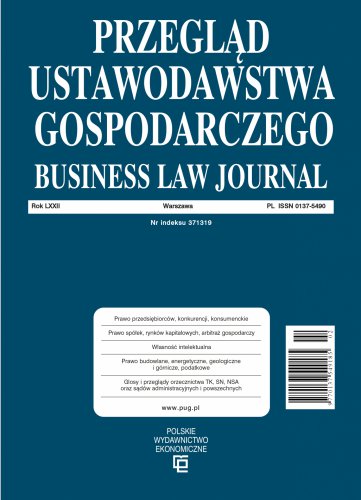Journal of Business Law 05/2021
ISSN: 0137-5490
Pages: 72
Publication date: 2021
Place publication: Warszawa
Binding: paperback
Format: A4
Publication date: 2021
Place publication: Warszawa
Binding: paperback
Format: A4
DOI: 10.33226/0137-5490.2021.5.1
Dr Lorenzo Benedetti, Dr Lucilla Galanti, Rúben Jesus, Dr hab. Joanna Kruczalak-Jankowska, Dr hab. Anna Machnikowska, Mgr Monika Maśnicka
JEL: K49
DOI: 10.33226/0137-5490.2021.5.2
JEL: K2
DOI: 10.33226/0137-5490.2021.5.3
JEL: G28, K23
DOI: 10.33226/0137-5490.2021.5.4
JEL: K34, H24, H32, H71
DOI: 10.33226/0137-5490.2021.5.5
JEL: K38
DOI: 10.33226/0137-5490.2021.5.6
JEL: K15
DOI: 10.33226/0137-5490.2021.5.7
JEL: K22, K23, K34
| Odbiór osobisty | 0 € |
| Kurier Inpost | 4 € |
| Kurier FedEX | 4 € |
| Inpost Paczkomaty | 4 € |
| Free delivery in Reader's Club | from 47 € |

